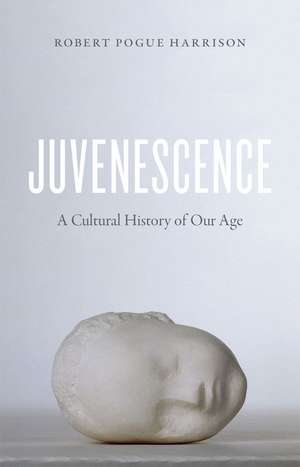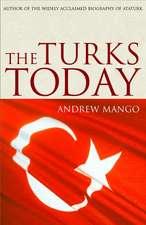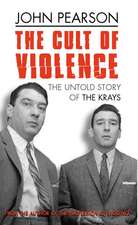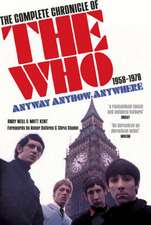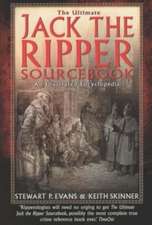Juvenescence: A Cultural History of Our Age
Autor Robert Pogue Harrisonen Limba Engleză Paperback – 19 apr 2016
How old are you? The more thought you bring to bear on the question, the harder it is to answer. For we age simultaneously in different ways: biologically, psychologically, socially. And we age within the larger framework of a culture, in the midst of a history that predates us and will outlast us. Looked at through that lens, many aspects of late modernity would suggest that we are older than ever, but Robert Pogue Harrison argues that we are also getting startlingly younger—in looks, mentality, and behavior. We live, he says, in an age of juvenescence.
Like all of Robert Pogue Harrison's books, Juvenescence ranges brilliantly across cultures and history, tracing the ways that the spirits of youth and age have inflected each other from antiquity to the present. Drawing on the scientific concept of neotony, or the retention of juvenile characteristics through adulthood, and extending it into the cultural realm, Harrison argues that youth is essential for culture’s innovative drive and flashes of genius. At the same time, however, youth—which Harrison sees as more protracted than ever—is a luxury that requires the stability and wisdom of our elders and the institutions. “While genius liberates the novelties of the future,” Harrison writes, “wisdom inherits the legacies of the past, renewing them in the process of handing them down.”
A heady, deeply learned excursion, rich with ideas and insights, Juvenescence could only have been written by Robert Pogue Harrison. No reader who has wondered at our culture's obsession with youth should miss it.
Like all of Robert Pogue Harrison's books, Juvenescence ranges brilliantly across cultures and history, tracing the ways that the spirits of youth and age have inflected each other from antiquity to the present. Drawing on the scientific concept of neotony, or the retention of juvenile characteristics through adulthood, and extending it into the cultural realm, Harrison argues that youth is essential for culture’s innovative drive and flashes of genius. At the same time, however, youth—which Harrison sees as more protracted than ever—is a luxury that requires the stability and wisdom of our elders and the institutions. “While genius liberates the novelties of the future,” Harrison writes, “wisdom inherits the legacies of the past, renewing them in the process of handing them down.”
A heady, deeply learned excursion, rich with ideas and insights, Juvenescence could only have been written by Robert Pogue Harrison. No reader who has wondered at our culture's obsession with youth should miss it.
Preț: 118.62 lei
Nou
Puncte Express: 178
Preț estimativ în valută:
22.70€ • 23.45$ • 18.89£
22.70€ • 23.45$ • 18.89£
Carte disponibilă
Livrare economică 04-18 martie
Livrare express 15-21 februarie pentru 32.80 lei
Preluare comenzi: 021 569.72.76
Specificații
ISBN-13: 9780226381961
ISBN-10: 022638196X
Pagini: 231
Dimensiuni: 140 x 216 x 18 mm
Greutate: 0.27 kg
Editura: University of Chicago Press
Colecția University of Chicago Press
ISBN-10: 022638196X
Pagini: 231
Dimensiuni: 140 x 216 x 18 mm
Greutate: 0.27 kg
Editura: University of Chicago Press
Colecția University of Chicago Press
Notă biografică
Robert Pogue Harrison is the Rosina Pierotti Professor of Italian literature and chair of graduate studies in Italian at Stanford University. He is the author of Forests, The Dominion of the Dead, and Gardens, all published by the University of Chicago Press.
Cuprins
Preface
Acknowledgments
1 : Anthropos
2 : Wisdom and Genius
3 : Neotenic Revolutions
4 : Amor Mundi
Epilogue Notes
Works Cited Index
Acknowledgments
1 : Anthropos
2 : Wisdom and Genius
3 : Neotenic Revolutions
4 : Amor Mundi
Epilogue Notes
Works Cited Index
Recenzii
"The book is somehow both digressive and closely reasoned. . . . It's odd and brilliant--clearly the product of thought given time to ripen."
"Harrison may be the single most important writer in the humanities today."
"Harrison has a wonderful way of inspiring, yet he does not extrapolate on current events, and offers no prognosis. In the preface, he says that he confronted a choice whether to either write a very short book or a very long one--readers will wish he had written a longer one."
Winner of the 2015 Bridge Award in nonfiction for the book that most aided the goal of mutual understanding between Italian and American Cultures, presented by the Casa delle Letterature of the Municipality of Rome in partnership with the American Initiative for Italian Culture, the American Embassy in Rome, the National Italian American Foundation, and the Federation of Italian Writers, in collaboration with the Italian Embassy in Washington, DC, the Calandra Institute of New York, the Italian Institute of Culture in Washington, DC, the American Academy in Rome, and other cultural institution in the two countries.
